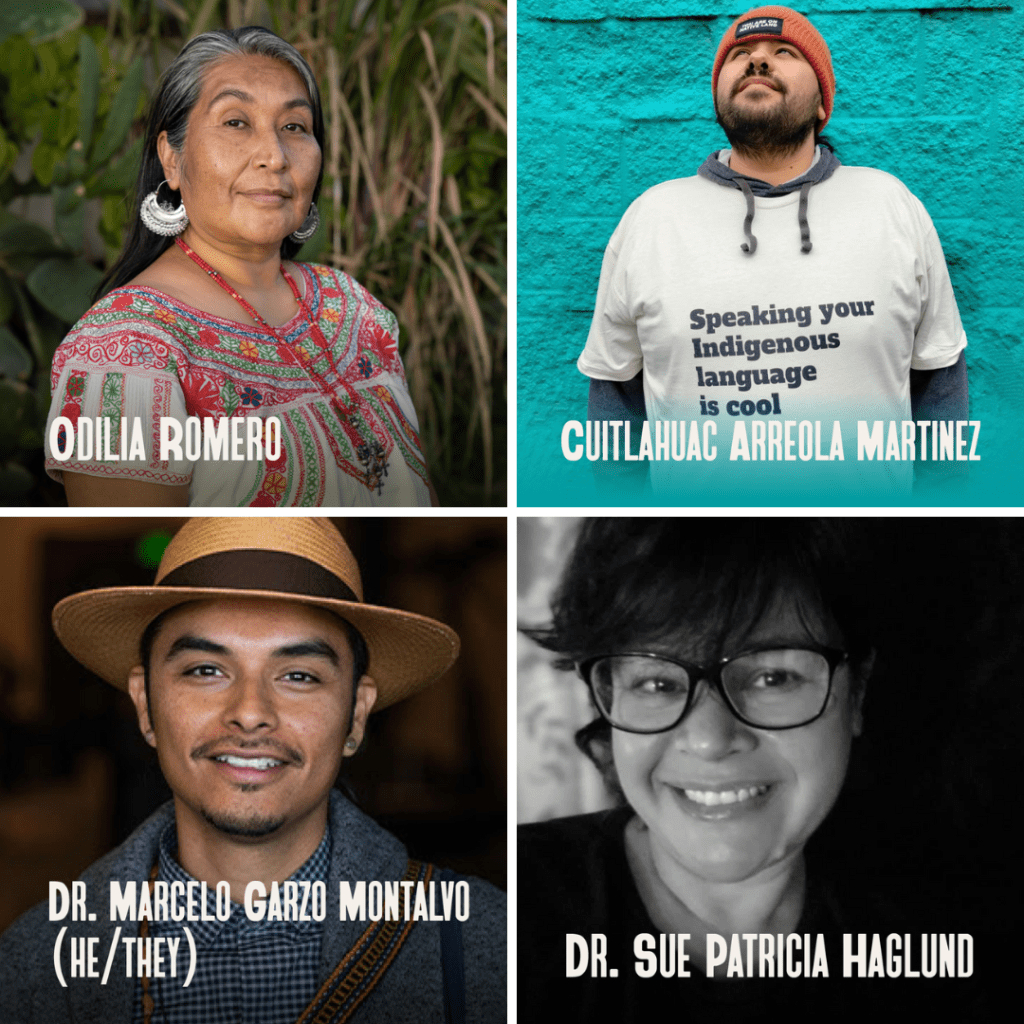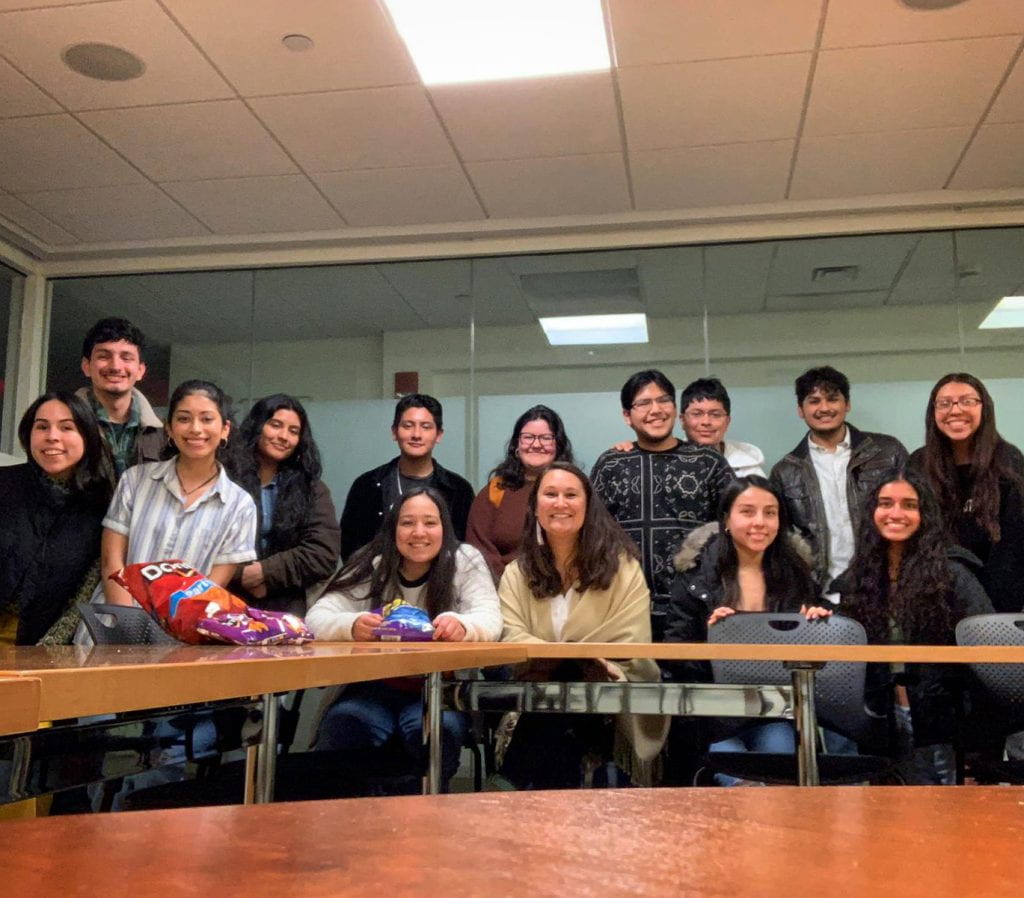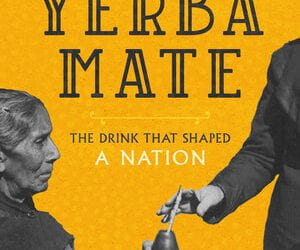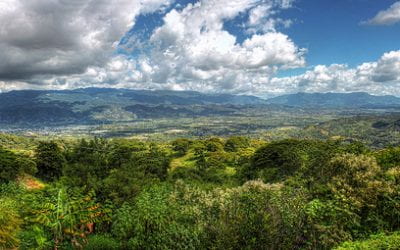Who Gives Us Our Names?
COATL: Seeds of Solidarity and Resistance
I burst into laughter when someone suggested calling our new student organization “Children of the Corn.” My mind snapped to the horrifying slasher films based on Stephen King’s short stories. But surrounded by Gen Z students, I was the only one laughing. Naturally, it is becoming more and more necessary to translate my Millennial references as a teaching fellow and mentor to undergraduates. I apologized for my automatic response to the idea and explained myself. Regardless of the popular connotation, the proposed name came from a beautiful and profound place, acknowledging and naming ourselves as descendants of the corn people, a foundational story of the Maya and various other Indigenous peoples of this continent. After a few weeks of discussion, we finally decided on COATL, which translates to serpent in Nahuatl.

Image Source: Codex Mendoza, folio 55 recto, https://codicemendoza.inah.gob.mx/inicio.php?lang=english Image Source, Rights: The Bodleian Libraries, University of Oxford, hold the original manuscript, the MS. Arch. Selden. A. 1. This image is published here under the UK Creative Commons, “Attribution-NonCommercial-ShareAlike 3.0 License” (CC-BY-NC-SA 3.0).
We hosted our first program on campus in April 2023. The two-part event called “Who Gives Us Our Names?” was designed as a provocation for the Harvard community on the topics of Indigeneity, Latinidad and Identity in the Americas.
Although this is our first year as an official student group at the College, we originally began at the Divinity School in 2021 as a study group for learning Nahuatl, a Mexican Indigenous language spoken by over 1.5 million speakers today and an imperial language in Mesoamerica during the arrival of the Spanish. In fall of 2022 we took a step back from conjugation and codices, in part because a group of enthusiastic Harvard College students wanted to explore broader questions of identity, history and solidarity but also because we realized that learning an Indigenous language requires more than resources (a major problem outside of Harvard) and representation/revitalization is only as good as the ethics and relationships that are built by and with Indigenous communities (which is much more complicated inside of Harvard). Both iterations of the group have been deeply energizing for me intellectually and personally and they have pushed me to ensure that my scholarship stays grounded in the lands, people and places that matter most. Working with this group has been part of my field education and role within the Moses Mesoamerican Archive and Research Project (MMARP), which has guided us as we learn to foster relationships across disciplines and across borders.
All of these values were reflected throughout the two-day event, with dozens of students gathered for a watch party on campus and fifty people logged in to the call from across the United States. We nervously introduced ourselves and our goals for the events, stating that we are here as students to humbly listen and learn from Indigenous leaders and community organizers and we will take seriously what they tell us. Here is what we heard.

Odilia Romero, co-founder and executive Director of Comunidades Indígenas en Liderazgo (CIELO), is an independent interpreter of Zapotec, Spanish and English for Indigenous communities in Los Angeles and throughout California. She had a lot to teach us about the real impact of “names” and labels, specifically, how homogenizing terms like “Hispanic or Mexican” can erase the particularities of communities and often impose a colonial or outsider gaze.
Yet, asserting her willingness to use labels as a form of resistance, she stated: “I will be whatever you want me to be. I will be a Latina. I will be a Mexicana. I will be Hispanic. But at the end of the day, I know that this is not who I am.” As a final but powerful point, Romero spoke frankly about academic extraction in Indigenous communities—she is regularly called upon by scholars who want their sources checked or want information for their research projects without any awareness or accountability to the people or places they write about. Romero maneuvers academia with skill and always on behalf of human rights and the day-to-day struggle. We must take these words to heart and follow her leadership as we continue to rethink our methodologies and relational ethics.
Kuitlahuak A. Martinez, Speak Nahuatl language teacher and activist, raised the issue of how identities (and names) shift through migration and diaspora which requires that we pay attention to these lineages and pursue educational opportunities where “we can teach about ourselves for ourselves” instead of being the object of study in institutions of higher education. As a poignant intervention, they asked us “what does ‘reconnecting’ mean? You are already connected. These practices and this knowledge are already here.”
Marcelo Garzo Montalvo, Assistant Professor of Ethnic Studies at California State University San Marcos (and a former Visiting Professor at Harvard), explored issues of indigeneity as being place-based and how this becomes complicated by migration—what happens when place-based peoples become displaced or detribalized? A dancer, musician and first-generation Chilean-Canadian-American of Mapuche descent, he emphasized, “A lot of us are displaced, place-based peoples… how do we work with the fact that we are people of the land, people of the earth, how are we Mapuche if we are far from our traditional Mapu/land but still with the Mapu in a larger sense?” Are there new definitions or ways of stretching what indigeneity means as a result of these diasporic experiences? Garzo Montalvo also inspired us to think about the power of ceremony and the role of musical instruments as “armas” (weapons) and reminded us of our tree and mountain ancestors and relatives who empower and accompany us in our study of the past and our weaving of the future.
Finally, Sue Patricia Haglund, a Dule poet-scholar native of Panama, began by sharing the foundations of breath and textiles for the Kuna. She then dove deep into the use of the term “Abiayala” a term which comes from her community and has become a popular substitute for “the Americas” when speaking about Indigenous peoples and lands in the hemisphere. She pushed back on the simple use of this name and the risks of using the term without a clear sense of its roots. She reminded us of the importance of breaking down these words and encouraged each community to turn to their own languages. Haglund concluded, “We give us our names. It is the stories we tell and practice that makes us who we are. Nothing else.”
As I sat in the conference room for the concluding event, I looked out at a scene of students and faculty of varying identities enjoying tequeños and Jarritos, telling their stories, exploring their questions, connecting through challenging conversation. With guidance from Professor Américo Mendoza Mori, Radcliffe fellow Emil’ Keme and Solsiré Cusicanqui Marsano from Harvard Anthropology we discussed our takeaways from the Tuesday event.
This collective spirit is so far from where I began. Although it feels like it was just yesterday, it was ten years ago that I was an undergraduate student waking up to questions of race, power, resistance and decolonization. On the other hand, ten years ago the world was different, decolonization wasn’t a well-known term and Indigenous studies courses were few and far between. Now, many of the students in COATL and at Harvard more broadly have taken classes like Introduction to Native American and Indigenous Studies with Professor Phil Deloria, Moctezuma’s Mexico with Professor Davíd Carrasco and Bill Fash, or Indigeneity and Latinidad with Américo Mendoza Mori. Faculty like Tiya Miles, Joseph Gone, Mayra Rivera, Matthew Leibmann and others introduce these histories and concepts within disciplines of history, psychology, religion and archaeology. And many of the COATL students were in my section in The Border: Race, Politics, and Health in Modern Mexico when I was a Teaching Fellow for Professor Gabriela Soto Laveaga. These courses, the faculty and the students themselves are planting seeds of change and resistance within this institution.
While I had once found myself on a solitary journey to try to understand what decolonization meant and what it could mean, I now find myself surrounded by a dozen of students from families similar to mine who are asking this question and walking the path together. It goes without saying that this has been one of the greatest gifts of my three years at Harvard, along with the impressive colleagues and great friends I have encountered at the Harvard University Native American Program and David Rockefeller Center of Latin American Studies. In fact, COATL was created out of a desire to support these distinct and overlapping communities in order to fortify bridges between these spaces and to add to the growing conversations on hemispheric indigeneity.
That collective nature is also reflected in our organization’s name. Although the word evokes the serpent, a powerful and transformational being, our name also functions as an acronym, Colectivo Olin Ancestral: Traditions and Languages. The phrase attempts to capture our desire to advocate for Indigenous knowledge and ways of being and relating while claiming our dedication to educating ourselves as a collective.
I will confess that I had my doubts about the power of the collective. When the eager Gen Z students told me they wanted to host a big event on campus in the Spring semester, I was worried. I was nervous about the complexity of the topics and, perhaps a bit jaded from my years of organizing events for nonprofits, I was uncertain about navigating Harvard. How could our small, new group face (and deconstruct) norms around prestige, power and knowledge production? In the end, I needed to be moved into action by COATL. Good thing is, the “o” in COATL stands for another Nahuatl term, “Olin,” which can be translated as movement. The fact of the matter is that this work reaches far beyond my own perspective and ability to recount this story. The movement began before we arrived and will continue after we are gone.

As a member of the Harvard community, it’s clear to me the institution has a long way to go in terms of Native and Indigenous Studies and accountability and reparations from a long and brutal history of slavery, colonialism, genocide and erasure. As Professor Garzo Montalvo observed in a Bok Center Seminar in 2021, “At what point in a decolonizing process, we might ask, does Harvard and the settler university cease to be recognizable as Harvard?” As a group we are not beholden to this institution nor will we primarily spend our energy trying to change it, rather, we are focused on interrogating systems of power and violence while practicing resistance and pursuing collective liberation. As I was advised in a conversation with the authors of Red Nation Rising, this is a training ground. Melanie Yazzie said it well during that Harvard Divinity School discussion: “it’s not about changing the institution… Harvard may never be fully accountable, that’s a losing game. Instead, engage the institution as a site of struggle to advance the larger struggle for liberation.”
As we end one cycle of planting and look forward to the next, I am giving thanks to the lineages of scholars, activists, families and communities who have made it possible for us to continue to engage and to claim our names.
Rebecca Mendoza Nunziato (she/ella/ya) is a Xicana MDiv candidate at Harvard Divinity School and a co-founder of COATL. She was a Summer Pre-Columbian Fellow at Dumbarton Oaks and is currently completing her thesis on the topic of copalli (copal), an aromatic tree resin and incense central to rituals and relationships across Mesoamerica. She will begin her PhD in the Committee for the Study of Religion at Harvard University Fall 2023.
She would like to thank each of the COATL members who carry forward this humble but important work. Tlazcamati miac, thank you especially to Anthony, Dariana, Samanta, Marisol, Sitalin, Ada, Toño, Nicole, Eliel, Kat, and all who come next. Onward, corn people let us plant good seeds.
Related Articles
A Review of Yerba Mate: The Drink that Shaped a Nation
On any given day, millions of South Americans—in the subcontinent and around the world—would engage in the same ritual. We heat water (making sure it doesn’t boil), prepare the mate, and sip, sip and sip. But where does that green, earthy, addictive, and for many outside South America exotic, drink comes from?
Editor’s Letter – Indigenous Voices
Editor's LetterFrom the Maya in Guatemala to the Mapuche in Chile, Latin America’s Indigenous peoples are on the forefront of fighting for rights, whether against mining and deforestation or for land rights or the right to express themselves as a culture. We divided...
The Health of Indigenous Populations in Mexico: Disencounters
English + Español
In the year 2000, we participated with Médecins Sans Frontières (MSF) in a medical-humanitarian project in impoverished indigenous communities in San Juan Cancuc, in the region of Los Altos de Chiapas.



